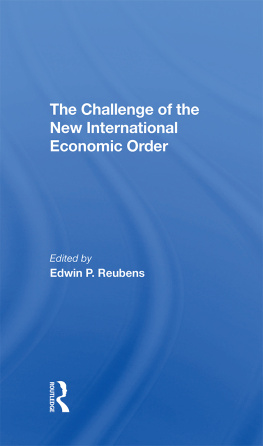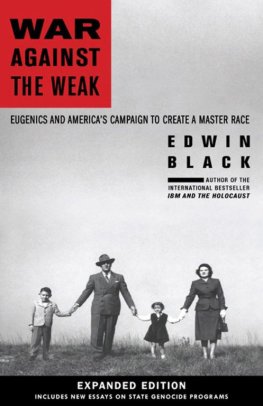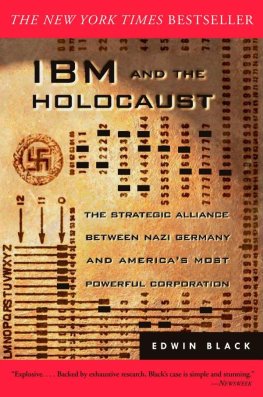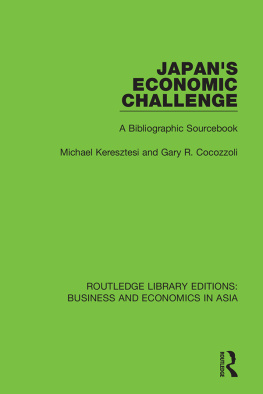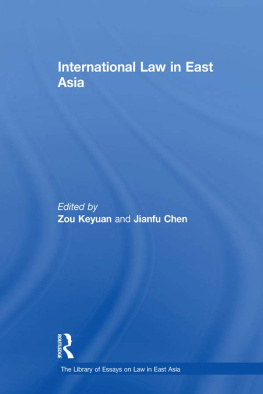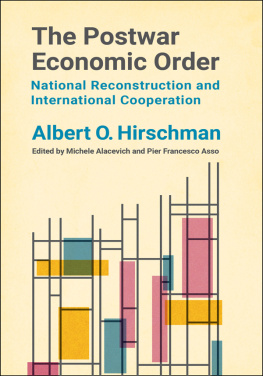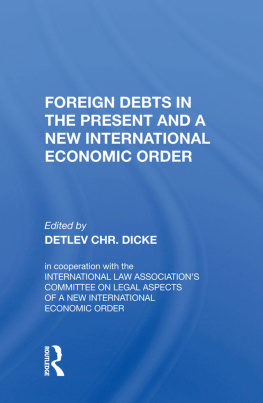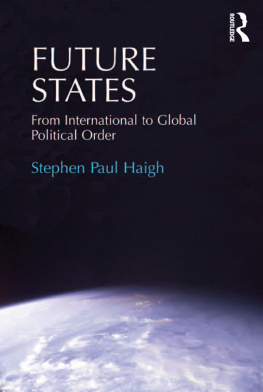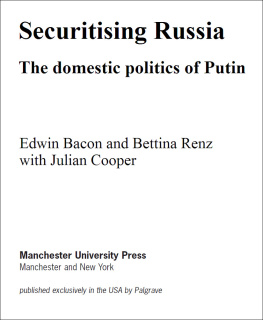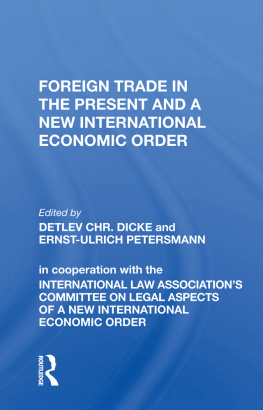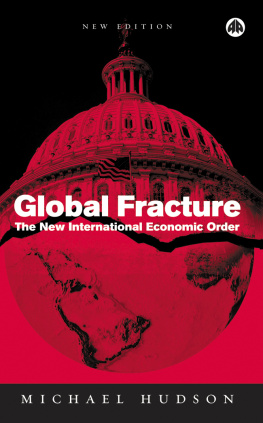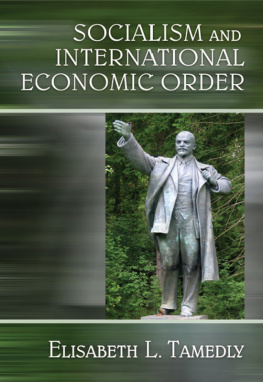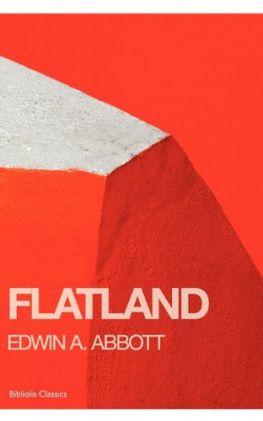The Challenge of the New International Economic Order
Other Titles in This Series
Administering Agricultural Development in Asia: A Comparative Analysis of Four National Programs, Richard W. Gable and J. Fred Springer
Food, Politics, and Agricultural Development: Case Studies in the Public Policy of Rural Modernization, edited by Raymond F. Hopkins, Donald J. Puchala, and Ross B. Talbot
Appropriate Technology for Development: A Discussion and Case Histories, edited by Donald D. Evans and Laurie Nogg Adler
The New Economics of the Less Developed Countries: Changing Perceptions in the North-South Dialogue, edited by Nake Kamrany
Technology and Economic Development: A Realistic Perspective, edited by Samuel M. Rosenblatt
Protein, Calories, and Development: Nutritional Variables in the Economics of Developing Countries, Bernard A. Schmitt
Economic Development, Poverty, and Income Distribution, edited by William Loehr and John P. Powelson
A Select Bibliography on Economic Development: With Annotations, John P. Powelson
From Dependency to Development, edited by Heraldo Muoz
Migration and the Labor Market in Developing Countries, edited by R. H. Sabot
Credit for Small Farmers in Developing Countries, Gordon Donald
Transnational Enterprises: Their Impact on Third World Societies and Cultures, edited by Krishna Kumar
Westview Special Studies in Social, Political, and Economic Development
The Challenge of the New International Economic Order
edited by Edwin P. Reubens
This volume deals with the recent proposals in the United Nations and elsewhere for reconstructing the existing economic relations between less developed and more developed countries. The contributors to the book undertake to clarify the NIEO proposals, asking specifically to what extent they are really new, fully international, realistically economic, and are the constituents of workable order.
The confrontation of NIEO demands and real-world constraints is a leading feature of the book, and each of the chapters deals with one or more elements of the NIEO proposals against the background of relevant conditions in both the countries and the international institutions and practices that interrelate them. The authors arrive at a considerable degree of consensus, mostly agreeing that the NIEO is not really a new order, but endorsing specific NIEO proposals that will achieve gradual progress for LDCs in absolute terms.
Edwin P. Reubens is professor of economics at the City College of the City University of New York. He has been a visiting professor at Columbia University, the New School for Social Research, the University of the West Indies, and the University of Sussex (England). As a consultant and research director he has served the United Nations, USAID, the National Commission for Employment Policy, the Select Commission on Immigration and Refugee Policy, and the Center for Philosophy and Public Policy at the University of Maryland. His extensive fieldwork has ranged over Asia, Africa, the Caribbean area, and Mexico. He cofounded the Far Eastern Association (now the Association for Asian Studies) and Omicron Delta Epsilon, and has been a member of the editorial board of The American Economist and referee for the American Economic Review.
The Challenge of the New International Economic Order
edited by Edwin P. Reubens
First published 1981 by Westview Press, Inc.
Published 2019 by Routledge
52 Vanderbilt Avenue, New York, NY 10017
2 Park Square, Milton Park, Abingdon, Oxon OX14 4RN
Routledge is an imprint of the Taylor & Francis Group, an informa business
Copyright 1981 Taylor & Francis
All rights reserved. No part of this book may be reprinted or reproduced or utilised in any form or by any electronic, mechanical, or other means, now known or hereafter invented, including photocopying and recording, or in any information storage or retrieval system, without permission in writing from the publishers.
Notice:
Product or corporate names may be trademarks or registered trademarks, and are used only for identification and explanation without intent to infringe.
Library of Congress Cataloging in Publication Data
Main entry under title:
The challenge of the new international economic order.
(Westview special studies in social, political, and economic development)
Includes bibliographical references and index.
1. International economic relationsAddresses, essays, lectures. 2. Underde
veloped areasForeign economic relationsAddresses, essays, lectures. I. Reubens,
Edwin Pierce. II. Series.
HF1411.C414 337 80-18079
ISBN 13: 978-0-367-29064-1 (hbk)
Contents
, Edwin P. Reubens
, United Nations General Assembly
, Wassily Leontief
, Kenneth E. Boulding
, Paul Streeten
, Robert S. Browne
, Andr Sapir
, Klaus-Heinrich Standke
, Robert Cohen and Jeffry Frieden
, Charles J. Siegman
, Edwin P. Reubens
, Danny M. Leipziger
, Edwin P. Reubens
This volume explores the issues involved in the current proposals for a New International Economic Order, as challenges to understanding, good will, cooperation, and reconstruction between the more developed and the less developed nations arise. Some prevalent myths are set against international realities, and the aspirations of the less developed countries are related to the constraints of the actual world. Policy guidelines are derived for adapting these aspirations and realities to each other.
The papers in this volume were presented at a conference on the New International Economic Order held in April 1979 at the Graduate Center of the City University of New York (CUNY). Participants included university faculty and students, research scholars, corporation executives, and officials of the U.S. government, foreign governments, the United Nations, and affiliated agencies. This was the seventh in a series of economic conferences sponsored by the Economics Department of the City College of CUNY and supported by funds from the Harry Schwager Endowment of the department. The meeting, which I organized and conducted, was additionally sponsored by the Ralph Bunche Institute on the United Nations (Professor S. M. Finger, director) and by the International Studies Association, Middle Atlantic Region (Professor Benjamin Rivlin, president). Facilities for the meeting were efficiently arranged by Joseph Harbert of the Ralph Bunche Institute.
In addition to the papers presented, the volume contains the text of the 1974 United Nations Resolutions on the New International Economic Order, a chapter on appropriate technology by the director of science and technology at the United Nations, and a chapter on migratory flows in the international labor market, as well as the editor's introductory Overview of the NIEO and his concluding chapter.
Edwin P. Reubens
Kenneth E. Boulding is Distinguished Professor of Economics at the University of Colorado and director of its Program on Social and Economic Dynamics. He has been president of the American Economic Association, the International Studies Association, and other professional societies, and is the author of many books and articles. He is particularly noted for his development of the concept of grants economics and his emphasis on economics as a normative and moral science.


